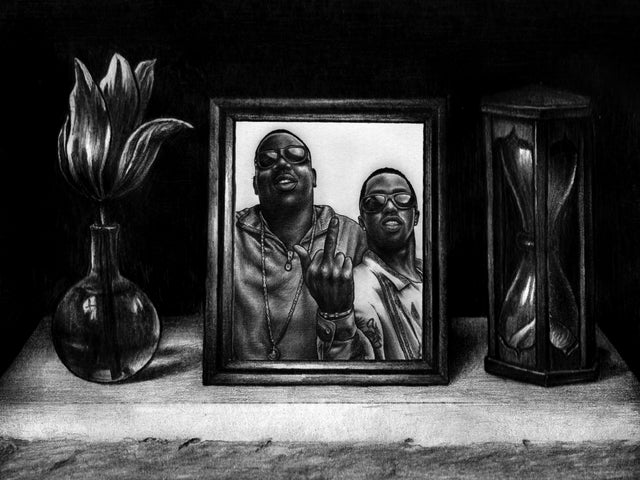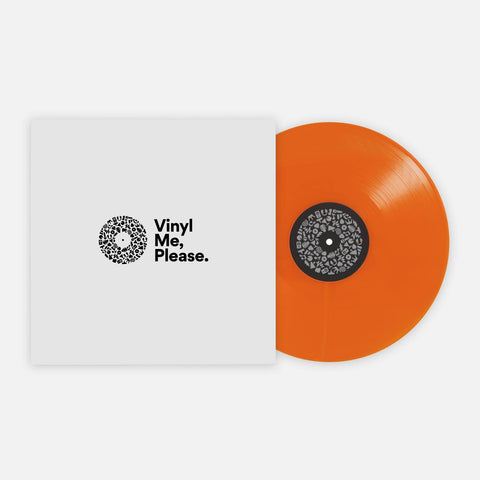The Books and Movies You Need to Experience to Better Understand Nina Simone
By now, you know that Nina Simone Sings the Blues is our featured Record of the Month. Sings the Blues is an essential album in Nina’s catalog—and a superb entry point into her artistry for those unfamiliar—but it’s only a small part of her story. Once you finish up reading our Liner Notes for the album, we realized you might want to be pointed to where you should go next, if you want to learn everything you can about her.
Befitting an artist of her stature, there have been many gallons of ink spilled, and trees cut down, to fill books about her life. There have also been multiple documentaries and DVDs made. But lucky for you, we’ve made this handy guide of five movies, four books, and one magazine profile you should/could read to learn everything you can about one of the greatest artists we’ve ever had.
Movies

Live at Montreux 1976
Nina Simone was a powerhouse on her myriad of studio albums, but take a minute to search through live performance video of her on YouTube, and you find out she was at her most powerful and magnetic and unbelievable when she was attacking a stage. The most complete Nina concert film ever committed to DVD is Live at Montreux 1976, a performance where Nina spends considerable time lashing out at the audience for having to play the performance—she had absconded to Liberia by then and was resentful of having to be the jazz singer she never saw herself as being anyway—but it’s a good display of how tender she could bring her vocal range, and how hard she ruled at playing a piano.

Nina Simone: La légende (The Legend)
Near as I can tell, this is the first longform film about Simone. Released in the early ‘90s in France after “My Baby Just Cares for Me” blew up in TV commercials and she was back in the public eye, Nina is interviewed at length, and even goes with cameras in tow back to her hometown of Tryon, North Carolina. This doc’s major strength is that it makes clear how much resentment Nina had built up over her career as a popular jazz singer; she left Tryon to be the first black classical artist to play at Carnegie Hall, and she considered her storied career a failure since she never accomplished that. This central self-disappointment—and the pressure she felt to provide for her family and for the Civil Rights Movement in the ‘60s-- explains a lot about Nina’s career moves, and this doc illuminates that better than most things on this list.

What Happened Miss Simone? (2015)
This Netflix doc almost won an Oscar this year, losing out to Amy. It’s a must-watch for the wealth of archival footage—Nina tells her side of the story through archival interviews, while the talking heads fill out the rest of the story—and for being the single best entry point into her career from aspirant classical pianist to a vital cog in the Civil Rights movement, to her checking out of it all to move to Liberia.
*What Happened *gets tremendous credit for not passing over Nina’s mental health struggles and difficult relationship with her husband and daughter (both of whom are interviewed here). The portrait painted here of Nina is a complicated, messy person; she isn’t deified as much as she is completely portrayed in this; every part of her career and persona is given equal weight here.

The Amazing Nina Simone (2015)
This doc had the unenviable position of coming out at the same time as the above, which means it missed out on the Oscar push, and missed out on the reappraisal and appreciation of Nina’s life and music. But the fact that it was made without the help of Nina’s estate—it does feature interviews with her extended family and some of her old bandmates—means that this doc, more so than any book or film on this list, is forced to discuss the minutiae of Nina’s music career to make up for its access deficiencies. This covers Nina’s music more fully than anything on this list, discussing multiple albums, discussing her performance style—which in later years, could leave listeners unsure if they were hearing a love song or a fiery protest song. Sure, it glosses over a lot of Nina’s mental health difficulties, and her tumultuous relationship with her second husband, but just on showing you how important her music was, this is top notch. The divergence to cover the rivalry between Nina and Aretha Franklin also makes this a much watch.

Nina (2016)
We’d be remiss if we didn’t mention this 2016 biopic on Simone. That doesn’t mean we’re recommending it: if you want to see every possible edge Nina proudly brandished during her career sanded down to Hollywood piffle, to see Zoe Saldana star in a movie that she is both too good and too bad of an actress for—her accent comes and goes like the seasons in this movie-- to see Nina’s Civil Rights record reduced to approximately four lines of dialog, to see a manufactured love story that never happened IRL, and to see one of the worst biopics ever made, spend an afternoon watching this. If nothing else, this stands as a testament to how desperately we need to stop encouraging Hollywood to make these things.
Books

I Put A Spell On You by Nina Simone with Stephen Cleary (1991)
“Sometimes I think the whole of my life has been a search to find the one place I truly belong,” Nina Simone writes in I Put a Spell on You, the autobiography she published in the early-90s after “My Baby Just Cares for Me” blew up via a commercial and she was back in the public eye. Published 12 years before her death, I Put finds a Nina reflecting back on her life, and it presents her life as a struggle to belong, but also to feel in control of her life. She didn’t get to be the classical pianist she wanted, she didn’t get to marry the man she loved as a teenager, she didn’t get the career she wanted initially, and she eventually gave her career over to a domineering husband. But she found herself through her work with the Civil Rights Movement, and eventually found some kind of freedom living in Barbados and Liberia in the ‘70s and ‘80s. Like all autobiographies, she paints herself in a more pure, nostalgic light than her biographers, but then again, they don’t take the divergences to describe how hot she thought Stokely Carmichael was in the ‘60s.

Princess Noire: The Tumultuous Reign of Nina Simone by Nadine Cohodas (2010)
For obvious reasons—her personality and Civil Rights work are what made Nina Iconic—there aren’t many books that go blow by blow through Nina’s recorded career and albums. You won’t find a book that tells you what it was like for her to record say, High Priestess of Soul, but this one is the closest: there are divergences into talking about her unfavorable recording contracts, and exactly how much Nina’s Civil Rights protesting affected her standing at her record labels. You won’t get a lot of insight here you can’t get elsewhere---though Nina’s later years are covered more fully here—but it’s worth recommending for someone who wants to read snippets about Nina’s recording career, along with the rest of her biography.

How It Feels to Be Free by Ruth Feldstein (2013)
Nina Simone’s story only figures in one section of this book, but this is still a must read, as it tells the story of five black women who risked their careers in the ‘60s to sing, speak out, and openly support the Civil Rights Movement. This book adds a lot of context the other books on this list are missing, in that it makes clear that Nina wasn’t a lone actor in trying to make the Civil Rights Movement central to her work, and she wasn’t the only one who lost her career for it. It’s a must read for people interested in what it was like to be black and famous in the ‘60s.

What Happened Miss Simone? By Alan Light (2016)
This book, meant to capitalize on the documentary of the same name, feels like a* Rolling Stone* profile maxed out beyond belief to book length. There isn’t a lot here that isn’t accomplished by the biographies that came before it, and there isn’t a whole lot by way of the cultural criticism you can find in other biographies either. That said, Light is basically in the upper echelon of music biographers, and this book is meant as an easy entry point for people looking for more than the documentary could give them. On that front, this book is solid.
Bonus
Nina Simone: High Priestess of Soul by Maya Angelou (1970)
Here’s a bonus inclusion: the seminal profile on Nina in Redbook magazine, written by Maya Angelou. It reads like poetry, and is maybe the best at capturing the actual Nina of anything written about her.
Andrew Winistorfer is Senior Director of Music and Editorial at Vinyl Me, Please, and a writer and editor of their books, 100 Albums You Need in Your Collection and The Best Record Stores in the United States. He’s written Listening Notes for more than 30 VMP releases, co-produced multiple VMP Anthologies, and executive produced the VMP Anthologies The Story of Vanguard, The Story of Willie Nelson, Miles Davis: The Electric Years and The Story of Waylon Jennings. He lives in Saint Paul, Minnesota.
Join the Club!
Join Now, Starting at $36Pages







